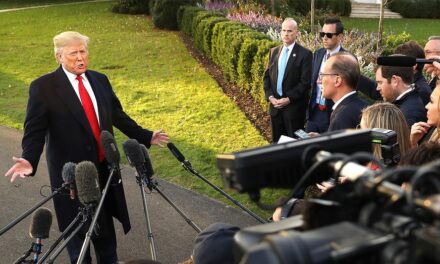In a recent turn of events, former President Donald Trump has found himself amidst a verbal skirmish with his one-time chief of staff, who in a recent statement, described Trump as ‘authoritarian’ and the ‘general definition of a fascist.’ The former president quickly responded, vehemently denying these characterizations and suggesting ulterior motives behind the remarks.
The comments by Trump’s former aide, who held a key position during a pivotal part of his administration, have sparked intense media scrutiny and public debate. According to sources, the description made by the ex-chief of staff paints a picture of a leader with a tendency to concentrate power and authority, shunning democratic norms and values. These remarks align with criticisms that have occasionally surfaced throughout Trump’s political career.
In response, Trump took to social media and various other platforms to dismiss these accusations outright. Labeling them as baseless and unfounded, Trump insisted that his leadership style was always in line with democratic principles and sought to serve the best interests of the American people. Furthermore, he hinted that the outburst might be a result of a personal disagreement or political maneuvering by his former aide to align with prevailing political sentiments.
Trump’s rebuttal reiterated his frequently stated commitment to democratic ideals and lawfulness during his tenure in office. He pointed to specific policies and achievements as evidence of his enduring dedication to the nation’s constitutional framework.
This exchange has inevitably led to a broader discussion among political analysts regarding the nature of leadership in contemporary politics. Trump’s presidency has been a polarizing subject, with a portion of the populace echoing the sentiments of his former chief of staff, while others defend him as a strong leader who shook up the Washington establishment.
The allegations of authoritarian tendencies and the tag of ‘fascist’ are particularly loaded accusations, steeped in historical and political weight. Such language can dramatically influence public perception and potentially impact political dynamics. Observers note that this confrontation could further deepen the existing rifts within the Republican Party or influence its future direction.
As the discourse unfolds, it highlights the broader challenges of political discourse in today’s highly mediated and polarized environment. Whether this will have lasting implications on Trump’s political capital or the broader landscape remains to be seen, but one thing is clear: this latest verbal clash has certainly captured the attention of both the media and the public. As the political arena continues to evolve, the outcomes of such exchanges could shape the contours of future political narratives.
































